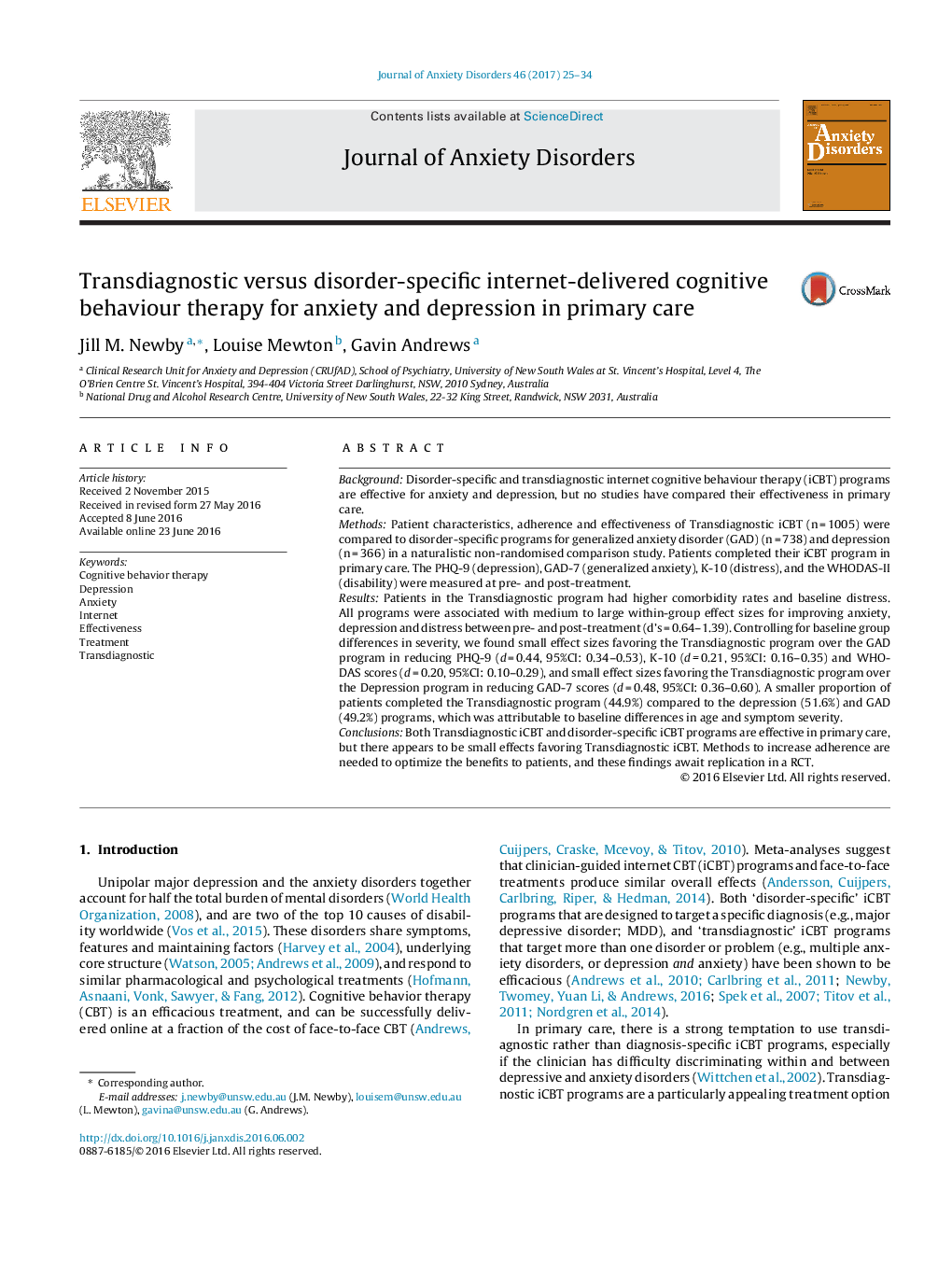| کد مقاله | کد نشریه | سال انتشار | مقاله انگلیسی | نسخه تمام متن |
|---|---|---|---|---|
| 5038919 | 1473032 | 2017 | 10 صفحه PDF | دانلود رایگان |
- Compared effectiveness of three ICBT programs in primary care.
- Transdiagnostic (TD-ICBT), disorder-specific ICBT for depression and GAD.
- Patients in the TD-ICBT group had higher baseline comorbidity and severity.
- Completion rates were modest (TD-ICBT: 44.9%, Depression: 51.6%; GAD: 49.2%).
- Effect sizes were comparable across programs, and moderate to large.
BackgroundDisorder-specific and transdiagnostic internet cognitive behaviour therapy (iCBT) programs are effective for anxiety and depression, but no studies have compared their effectiveness in primary care.MethodsPatient characteristics, adherence and effectiveness of Transdiagnostic iCBT (n = 1005) were compared to disorder-specific programs for generalized anxiety disorder (GAD) (n = 738) and depression (n = 366) in a naturalistic non-randomised comparison study. Patients completed their iCBT program in primary care. The PHQ-9 (depression), GAD-7 (generalized anxiety), K-10 (distress), and the WHODAS-II (disability) were measured at pre- and post-treatment.ResultsPatients in the Transdiagnostic program had higher comorbidity rates and baseline distress. All programs were associated with medium to large within-group effect sizes for improving anxiety, depression and distress between pre- and post-treatment (d's = 0.64-1.39). Controlling for baseline group differences in severity, we found small effect sizes favoring the Transdiagnostic program over the GAD program in reducing PHQ-9 (d = 0.44, 95%CI: 0.34-0.53), K-10 (d = 0.21, 95%CI: 0.16-0.35) and WHODAS scores (d = 0.20, 95%CI: 0.10-0.29), and small effect sizes favoring the Transdiagnostic program over the Depression program in reducing GAD-7 scores (d = 0.48, 95%CI: 0.36-0.60). A smaller proportion of patients completed the Transdiagnostic program (44.9%) compared to the depression (51.6%) and GAD (49.2%) programs, which was attributable to baseline differences in age and symptom severity.ConclusionsBoth Transdiagnostic iCBT and disorder-specific iCBT programs are effective in primary care, but there appears to be small effects favoring Transdiagnostic iCBT. Methods to increase adherence are needed to optimize the benefits to patients, and these findings await replication in a RCT.
Journal: Journal of Anxiety Disorders - Volume 46, March 2017, Pages 25-34
